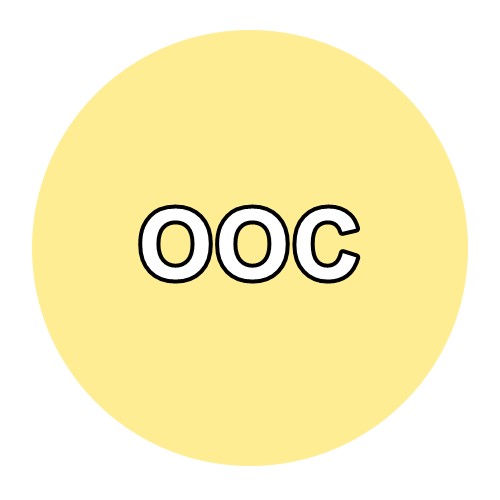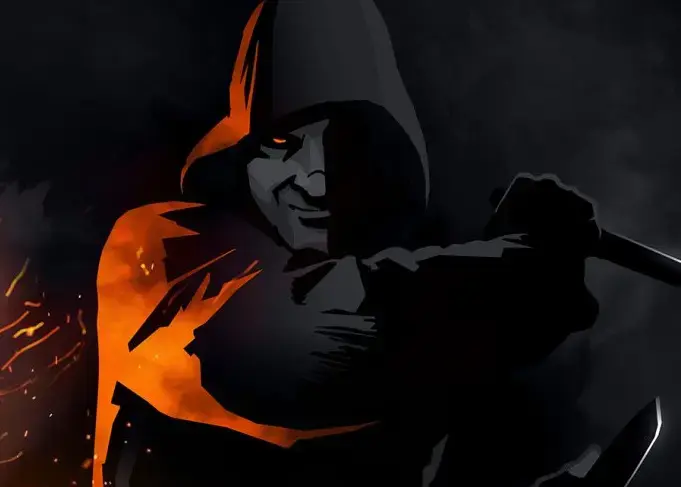

Oh damn, the UI really hides that button; that should be way more prominent in my opinion. I had no idea Lemmy supported that functionality!
Mastodon account: @dwgill@dice.camp


Oh damn, the UI really hides that button; that should be way more prominent in my opinion. I had no idea Lemmy supported that functionality!
I didn’t even realize Avatar Legends had a box set 🤔


I would love to but I need to catch up!! 😭 I’m still working through S1


The server is a version behind but the latest version temporarily removed captchas which can help a bit with spam accounts, so that might be why the admins are waiting to update. Still, I’m pretty sure most Android apps only support the latest version so it would be nice if we can update sooner rather than later!


That’s honestly the biggest potential upside with Meta’s Threads in my opinion: better chance to grab more of the big online personalities (e.g. it’s on the record that they’ve been reaching out to major celebrities) and (at least for the foreseeable future) Meta seems invested in full-featured Fediverse interoperability including account migration, etc.


I think this is an entirely valid perspective. Some people are just overflowing with ideas and the use of ChatGPT (or any kind of aid in inspiration, such as random tables) seems redundant. Just for a point of comparison, my own experience is a combination of (a) I simply enjoy creating some kinds of content more than others, and (b) I don’t have enough spare time to personally author all of the content I want for my campaign. With my limited time, I want to focus on authoring the stuff that I enjoy creating and/or the stuff that’s going to have the biggest impact. As an example, I’m happy to delegate descriptions of rooms to books of tables or ChatGPT if it means I can focus instead on the lore of the dungeon as a whole or the background & motivations for its overarching villain.


I highly respect this bit of advice. It’s a classic. But I have also found it can assume a certain kind of player, and that there do exist players which seemingly desire a storyline they can just follow. They still want to have agency and make interesting and consequential decisions, but I still find them a bit aimless and lost when I drop them in a sandbox.
In fairness to this received wisdom, I think the phrase interesting situation is doing more work than I have historically given it credit for. It’s not just about it being interesting in the abstract, but (at least with some players and parties) presenting a status quo and then introducing (or threatening) the prospect of changing that status quo. I suppose my tl;dr is that with interesting situations inaction should feel like a meaningful choice. The orphanage will burn down, the criminal will escape, the freedom fighter will be caught. (Ideally, you leave the determination of whether they’re a criminal or a freedom fighter up to the players.)


I feel (rightly & legitimately) called out 😭 I literally got two months into my renaissance political intrigue campaign before I discovered Court of Blades. It’s a perfect fit for my interests, but now my campaign is lousy with so many d&d tropes (Tieflings! Dhampirs! Changelings! Dragons!) that I more than likely couldn’t switch systems without home brewing everything out the wazoo 😓


I’m fascinated to hear you actually use it during a session! Can you give an example of what that looks like? I can’t imagine it without majorly interrupting play personally, so I’d love to hear more about how you make that work


Ah, that makes sense. On one hand I’d think Sci-Fi would be tricky for chatgpt as it’s nowhere near as homogenous as fantasy, but on the other hand (as you say) it’s kind of anything goes all the same, so that’s cool to hear it works out well in the end


That area of “material that’s nontrivial to produce but not certain to be read/consumed by the players” might be the most useful place for chatgpt, in retrospect. I don’t want to draft an entire story that could well just be ignored, but I can edit or touch up something that an AI gives me.


It does seem to do pretty well in that regard. Can I ask if your game is a conventional d&d campaign or something else?


That’s awesome. ChatGPT seems to do pretty well when your campaign aligns with traditional D&D tropes, but I had no idea it would even generate hex maps! That’s wild


I have found it useful for handouts as well. I usually need to do a few rounds of editing and back and forth to get details and tone/voice just right, but it’s often still easier than writing it from scratch myself. It’s also nice for writing something yourself and then having it rewrite it in another voice e.g. “rephrase this letter like a victorian dandee wrote it”


I can understand the skepticism, but if helps things up at all, I would clarify that I think exceedingly few people who use random tables (even all the way back to the 70s) really use them as a final say in what’s happening next. Most who use it probably appreciate it more as a way of dislodging tired tropes and tricks they find themselves always falling back on.
I think of it as one more source of inspiration to keep in your toolbox, alongside the evergreen “steal from media you like.” That said, ymmv as with all things in life, and the best prep is the one that works for you!


Thanks so much! I will definitely check that out


So, far and away the greatest utility I have found for ChatGPT is in two areas:
General Brainstorming
ChatGPT is pretty good at just coming up with ideas for your campaign in general. I’m talking about stuff like adventure ideas, encounter ideas, descriptive details of rooms, etc. It’s not great, though, and its output can feel pretty generic compared to material like Raging Swan Press which has entire books full of wonderfully evocative tables great for filling environments and dungeons with detail. There’s also stuff like this Random Adventure Generator by @slyfourish@ttrpg.network or this other Random Adventure Generator by donjon which are both probably just as good or better than ChatGPT in general at brainstorming adventure ideas.
Where ChatGPT shines however is that you can give it basically arbitrary thematic or fictional constraints and tell it to generate ideas within that context. ChatGPT is mediocre at generic D&D or traditional fantasy, but my campaign isn’t a typical D&D campaign world, and as a result ChatGPT is basically the only random generator that can reliably generate ideas that are actually useful for my campaign. In essence, ChatGPT is a random generator I can tailor to my campaign world.
Here’s an example below of how I might use ChatGPT for this. In practice, I often like to “prime” it with details of the major characters of my campaign as well. It’s not brilliant, and you can see in many places it’s effectively repeating back themes or ideas that I gave it in the first place, but it’s nonetheless incredibly useful compared to the kind of stuff I tend to get back from other random generators that focus on generic fantasy content.
My biggest challenge with this kind of usage of ChatGPT is that it tends towards sounding like a back-of-the-book summary of a plot, often generalizing or otherwise glossing over the specific details that I’m precisely interested in. The first response to my prompt in the example is a great demonstration of this, which is why you’ll see I have to follow up by prompting it for specifics about the McGuffins and the cast of characters. If anyone has ideas for prompts that can avoid this tendency to summarize without making it write novels of text, I’m all ears.
Tying Up Plot Threads
ChatGPT can be really helpful with brainstorming not just general ideas but specific plot points for your adventures and campaigns. I don’t know how to explain this well outside of sharing another example but the gist is that you give ChatGPT a lot of detail about your campaign and its themes, characters, world, and setting, and then explain how there’s a “gap” in the story somewhere and ask it to brainstorm how to fill it. In my example here, the “gap” is that I’m missing a clue to deliver some critical information, but I’ve also used it successfully for other things like:
“Why or how would character ABC be connected to mysterious phenomena XYZ?”
“Which of these characters could have summoned the monster, and why?”
“What is the nefarious scheme this character is planning (which I hinted at in a prior session)?”
I’ll have to give that a try! I had heard of Masks but it’s a testament to how popular pbta is that it has several superhero systems 😅


I’m a big fan of @slyflourish@ttrpg.network’s trick of preparing secrets, clues, or general plot point revelations in advance and without anticipating the context of where or how they will be revealed. That is, you just prepare a list of ten facts or details that will engage the players if and when they learn them, and you improvise how they learn them at the table. It’s great for when a player character unexpectedly goes to the library to aimlessly look for clues, or the PCs start talking with an NPC and you need to drop some nugget of info to make the conversation feel worthwhile.
I’m a big fan of a small app called UpNote. It’s clean and simple with a few power features you can use if you really dig into it. It largely has the same baseline set of features as Obsidian, but it supports syncing across devices out of the box and has a one-time purchase of a lifetime membership.